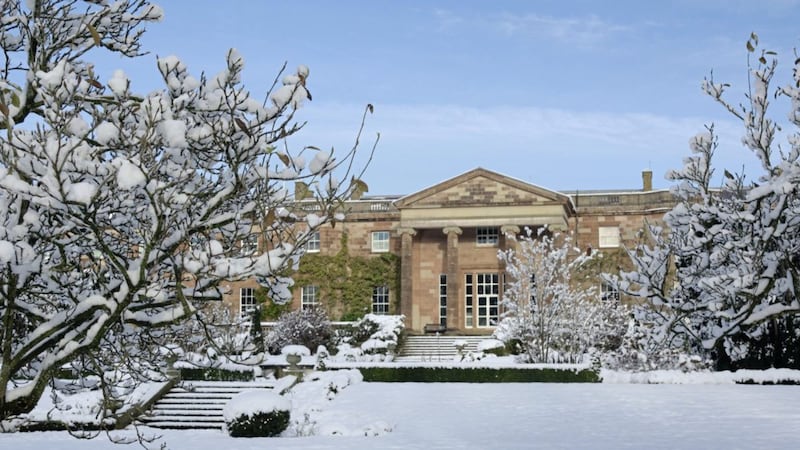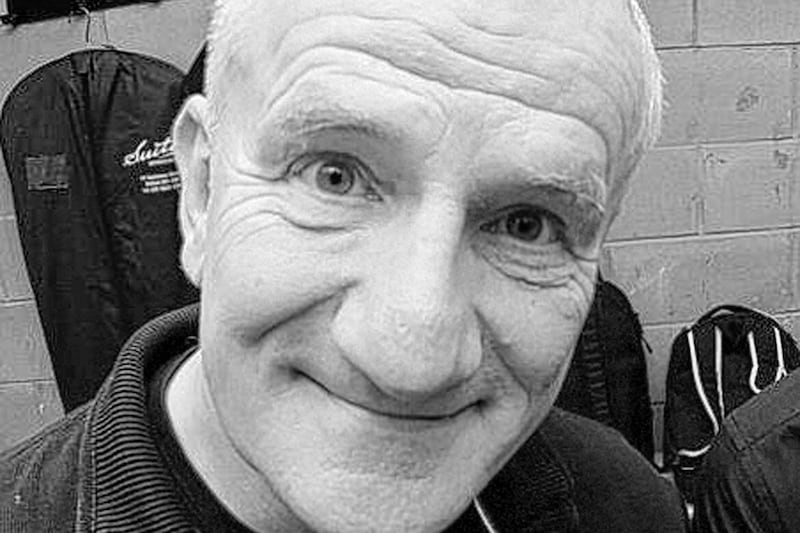I HOPE, as you read this on Saturday morning, that we've had a quiet Twelfth. As I submit this column on the afternoon of Thursday July 11, there are real worries of unrest breaking out over the positioning of a bonfire in the grounds of Avoniel Leisure Centre.
I have to admit I'm somewhat conflicted over the issue of bonfires. I could easily take the moral high ground, as so many have, and condemn all bonfire builders as mindless idiots, but to do so would be an act of wilful amnesia as, in my youth, I was myself a bonfire builder.
Growing up in north Belfast in the 1970s, one of the highlights of our year was the August 9 bonfire which commemorated the introduction of Internment. With July's '11th night' bonfires still smouldering, little gangs of nationalist children set out to gather any combustible material available to build their ninth night bonfire.
At the time, housing redevelopment was ongoing in our district, with whole streets of red-brick houses being demolished. We descended like locusts on any buildings not flattened by contractors, stripping them of doors, floors, and even roof joists.
I think back to those times and am amazed that, apart from the occasional cut hand or nail in the foot, more of us weren't more seriously injured as we demolished these crumbling buildings with our bare hands.
Such was the competition to have the biggest bonfire or 'bonnie' as we called them, that gangs would raid adjacent bonfires to steal material to augment their own. More than once, full-blown riots broke out over such activity, with befuddled British soldiers looking on, wondering why nationalist youths had begun rioting among themselves.
By the time the ninth arrived, mothers had long given up washing clothes, as children spent the month of August coming home like miners returning from the pit.
There was a bonfire at the end of every street whose size was determined by the number of kids in that area, or their ability to steal from other fires. The lighting of the bonfires was heralded by women beating bin lids off the ground, the same alarm used on the night of Internment on the August 9 1971.
Our pyre was positioned in the middle of New Lodge Road, at the end of Bruslee Way, around which most of us lived. At 30 feet tall, minuscule compared to the bonfires of today, its position only a matter of feet away from surrounding houses meant it still had the power to crack windows.
Due to the crass selfishness of youth, we'd little concern about the mayhem we caused – all that mattered to us was our entertainment. And so each year, the cycle repeated until the year the redevelopment of local housing reached New Lodge Road. Overnight, local women made it crystal clear they'd no longer endure the destruction of the main road outside their newly built homes, much less the cracking of their windows.
Another factor was that my generation of 'bonnie' builders grew up and our interest in burning wood was replaced by alcohol and chasing girls. Gradually, the August 9 bonfires died out but their demise wasn't solely down to community anger but also the strenuous efforts of many community workers, who diverted young people towards more constructive activities.
Such efforts led to the creation of the West Belfast Festival, today the most prominent community festival in Europe where, on offer, is every form of culture imaginable, from poetry to prose, drama to comedy and fine art, to the world’s first 'cribby' championships.
Nobody wants to deny anyone the right to celebrate their culture, except with one exception – when the celebrating of that culture negatively affects others.
A classic example of such a negative impact was the building of a bonfire this year beside a block of flats in Portadown's Corcraine estate. Residents received official letters advising evacuation from their homes on the night of the bonfire, due to safety concerns.
Such fears are well-grounded, as three homes in Hopewell Square in the lower Shankill were gutted by an 11th night bonfire in 2016. With many fires now scaling over 100ft, will it take someone getting seriously injured for sanity to prevail?
What I've found most baffling while watching recent television reports on contentious bonfires is the number of grown men still engaged in this activity. While the smell of burning wood and tyres will always transport me back to my childhood, that's where that memory remains – firmly in my youth.










